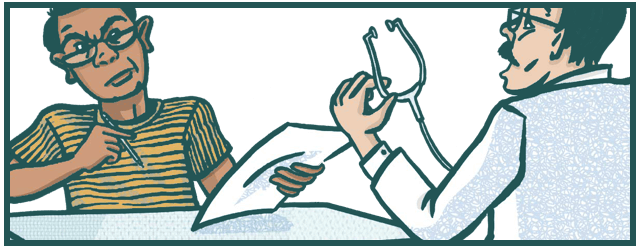All About an Echocardiogram
Besides blood work, an echocardiogram, commonly called an echo, is one of the most common tests that is performed on a person with congestive heart failure. There is a lot going on and it can be very confusing for us, especially without any medical training. We want to know the results right away and even go to the lengths of taking pictures of the numbers and trying to figure out for ourselves what they all mean. Here are a few things to know from start to finish about an echo.
Featured Forum
View all responsesPrepping for an echo
Prepping for an echo is easy. Unless instructed, you don’t have to do anything. It is not invasive and you do not need to keep yourself from eating or drinking beforehand. The only thing you need to prepare for is the time it takes and the cold jelly the use on your chest.
During the echo
During the echo, you may be asked to hold your breath or breathe lightly in order for the tech to get a better picture. You will see black and white, red and blue colors, and hear the sound of your heartbeat. Do not try to analyze these. You won’t be able to and it will get you worried. If there is anything wrong, your doctor will let you know.
If you don’t trust any doctor telling you everything, ask for a printout of the results. They will usually have the doctor’s impression of the test. Try to do this while you are there so you can ask questions about anything you want to know. Taking it home and then using Google is not recommended. There are going to be a lot of numbers associated with the test. Do not focus on the numbers. Those are used by your doctor to come up with the final results which they write out. Use this to determine what is good and what is maybe not so good about your heart.
After the test

After the test, make sure you have time to talk to your doctor about the results. Ask about your ejection fraction and what your stroke volume is compared to a normal volume. Make sure to ask about the condition of all the valves in your heart. Find out anything else they test and look for and enquire how they are. Remember, the doctor is there to take care of you. When he or she is with you, that is your time to get everything you need on the table and talked about. You only see them once every six months to a year, so make that time count. They can answer all the questions you need and should do so.
It's about how you feel
It is usually recommended to get an echo every year at least, sometimes more frequently if your healthcare team deems it necessary. I have not had one for over a year, but my condition has not changed. I feel exactly the same and while I want to know if it has improved, I have learned not to focus on the number. It is much more important how you feel. Yes, you want to know where your heart is at for treatment, but nothing is more important than how you feel.

Join the conversation